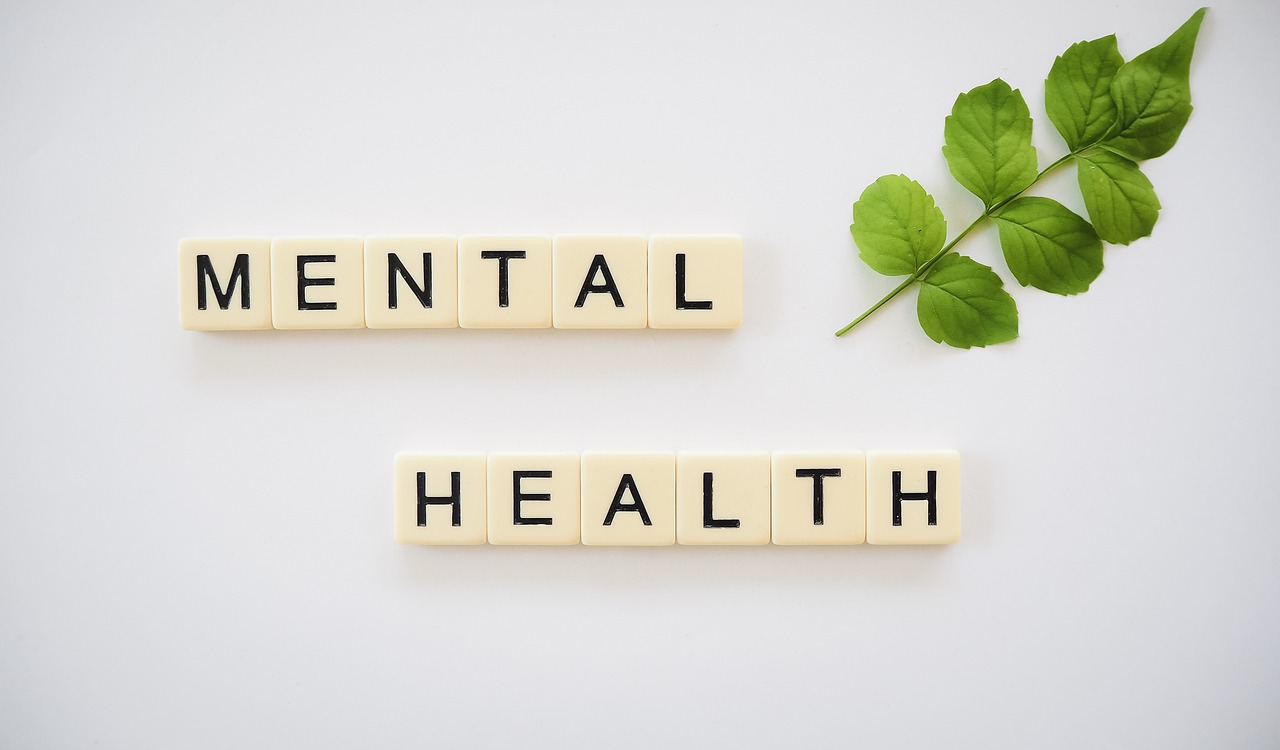
@ShahidNShah


Understanding and managing substance-induced psychotic disorder requires patience, professional support, and a clear recovery plan. While this condition presents significant challenges, many people find their way to better mental health through proper treatment and sustained effort.
The path to wellness might seem daunting at first, but with the right support and understanding, positive changes become possible.
Substance-induced psychotic disorder occurs when drug use or medication leads to psychotic symptoms. Generally, these symptoms might include seeing or hearing things that others don’t experience, having unusual thoughts, or feeling disconnected from reality.
The condition differs from other forms of psychosis because it directly relates to substance use. Understanding this connection helps both healthcare providers and those affected create more effective treatment plans.
In general, early recognition of symptoms helps people seek treatment sooner. For instance, someone who experiences this condition might notice changes in their thinking patterns. Additionally, they will face changes in unusual sensory experiences or difficulty distinguishing reality from imagination.
If you are seeking help, you can initially consult with a psychiatrist in New York. Also, you might visit a local doctor who specializes in substance-related disorders.
Friends and family often notice behavioral changes before the person experiencing them does. Hence, if you pay attention to these early warning signs, it will help in quicker intervention and better outcomes.
Common early warning signs of substance-induced psychotic disorders include:
The following are the ways through which healthcare professionals assess and diagnose substance-induced psychotic disorder:
Primarily, healthcare providers use specific criteria from the DSM-5 substance-induced psychotic disorder guidelines. This helps them to make accurate diagnoses. Also, they look at symptom patterns, substance use history, and how symptoms relate to substance use timing.
This careful evaluation helps distinguish between different types of psychotic disorders. However, the assessment process might take several sessions to ensure a thorough understanding of the situation.
A thorough medical check-up helps rule out other conditions that might cause similar symptoms. Moreover, healthcare providers often request various tests to ensure accurate diagnosis and appropriate treatment planning.
Understanding the full medical picture leads to better treatment outcomes. Also, regular follow-up examinations help track progress and adjust treatment approaches as needed.
Some technologies like smartphone apps, wearable sensors, and telepsychiatry aid in the treatment of substance-induced psychotic disorders. Apart from that, they also ensure better access to care and treatment.
In addition to that, with the development of new technology, healthcare professionals can monitor remotely and can perform personalized interventions. On the other hand, people have better accessibility, especially the ones that live in remote areas.
The following are the major technologies that are helping in treating substance-induced psychotic disorder:
Firstly, wearable sensors are able to monitor various physiological signs. Additionally, they can detect drug usage and help to track patterns in substance use. This way, you will be able to identify your potential relapses.
On the other hand, remote monitoring technologies also help in substance-induced psychotic disorder. For instance, breath alcohol concentration (BrAC) testing helps to do multiple biometric assessments without the person in contact. This is also possible with biological fluid drag testing.
In addition to that, wearable technologies help to monitor overdoses. Also, it will help in real-time interventions.
When it comes to smartphone apps, there are self-directed education programs for patients suffering from addiction. Hence, you will be able to develop skills that help you in cognitive-behavioral therapy. Also, it will help you in relapse prevention.
On the other hand, CBT interventions and ongoing support through apps are also helping patients in dealing with addiction better. In addition to that, there are even apps that help adhere to medication schedules. Hence, if a person suffers from co-occurring mental disorders, such apps are particularly helpful.
Moreover, the “RESET” app has also helped many patients abstain from substance use significantly.
Telepsychiatry helps healthcare professionals to provide remote care. Hence, people suffering from substance disorders have better access to treatments. Apart from that, there are many online platforms that offer confidential support and therapy sessions. Furthermore, with the development of VR, it will help in immersive therapeutic experiences.
When it comes to substance-induced psychotic disorder, the following are the major treatment approaches you need to know about:
The first phase of substance medication-induced psychotic disorder treatment focuses on immediate safety and stabilization. In this case, healthcare providers work to help people feel more stable and connected to reality.
This might involve temporary hospital stays or intensive outpatient care. Here, the initial period often requires close monitoring and support to ensure safety and begin the healing process.
When it comes to ongoing care, treatment for substance-induced psychotic disorder usually includes the following components:
The following are some of the major strategies that healthcare professionals recommend to patients to manage Substance-Induced Psychotic Disorder:
Establishing regular daily patterns helps manage symptoms and support recovery. Basically, simple activities like regular meals, consistent sleep times, and planned exercise make a significant difference.
Moreover, structure provides a foundation for healing and growth. Hence, creating predictable patterns helps reduce anxiety and supports better mental health outcomes.
Learning to handle stress effectively plays a key role in recovery. Hence, you can start with simple relaxation techniques and regular physical activity. Also, healthy social connections help reduce stress levels.
Finding personal ways to stay calm during difficult moments supports long-term wellness. Developing a variety of coping strategies allows for flexibility in different situations.
Family support makes a significant difference in recovery outcomes. Teaching family members about substance-induced psychotic disorder treatment helps them provide better support.
Clear communication about needs and challenges strengthens relationships during recovery. Family therapy sessions often help improve understanding and support methods.
Building relationships with healthcare providers creates a strong foundation for recovery. Regular check-ins help track progress and address challenges early. Open communication about medication effects and recovery challenges leads to better outcomes. Creating a team of supportive professionals helps ensure comprehensive care.
Many people successfully return to work or school while managing their condition. Planning ahead for challenging situations helps maintain regular activities.
Working with counselors or advisors to create realistic plans supports success. Gradual returns to normal activities often work better than rushing back too quickly.
Maintaining healthy social relationships supports recovery. Finding ways to spend time with supportive friends and family helps create normalcy.
Building new social connections through support groups adds another layer of understanding and encouragement. Learning to balance social activities with personal needs takes time and practice.
To ensure long-term recovery of substance-induced psychotic disorder, you will need to consider the following factors:
Keeping track of progress helps maintain motivation during recovery. Small improvements add up to significant changes over time. Celebrating these achievements while staying realistic about ongoing challenges supports continued growth.
Written records of progress often help during difficult days by showing how far someone has come.
Understanding personal triggers helps prevent future episodes. Creating plans for handling difficult situations reduces anxiety about potential problems.
Working with healthcare providers to develop prevention strategies builds confidence in managing the condition. Regular review and updates of prevention plans help maintain their effectiveness.
Recovery often leads to significant personal development. People frequently discover inner strength they didn’t know they had. Learning new coping skills and understanding personal needs better supports long-term wellness. The challenges of recovery often lead to meaningful insights about oneself.
Making positive changes to daily habits supports recovery. Regular exercise, proper nutrition, and good sleep habits create a foundation for better health. Small, consistent changes often lead to lasting improvements. Finding enjoyable ways to maintain healthy habits increases their sustainability.
Maintaining connections with healthcare providers and support systems helps sustain progress. Regular check-ins ensure that treatment plans stay effective.
Adjusting approaches as needs change supports ongoing recovery. Building a reliable support network takes time but proves invaluable in long-term management.
Setting realistic goals for the future helps maintain focus on recovery. Working with counselors to create achievable plans builds confidence. Taking things one step at a time while keeping sight of larger goals supports steady progress. Flexibility in planning allows for adjustments when needed.
The following are the major treatment options for substance-induced psychotic disorder:
When medications play a role in treatment, understanding their effects becomes important. Working closely with healthcare providers helps ensure proper medication management. Regular reviews and adjustments support optimal treatment outcomes. Learning about medications helps people make informed decisions about their treatment.
Different types of therapy might help during recovery. Some people benefit from individual counseling, while others find group therapy helpful. Many discover that combining different approaches works best for their situation. Finding the right therapeutic fit might take time, but it proves worthwhile for recovery.
Recovery from substance-induced psychotic disorder takes time and dedication. Working with healthcare providers, maintaining healthy habits, and building strong support networks all contribute to successful management.
While everyone’s experience differs, many people find ways to manage their symptoms and improve their quality of life.
The path to better mental health requires patience and consistent effort. Understanding that progress happens gradually helps maintain realistic expectations. Hence, with proper treatment and support, many people achieve significant improvements in their mental health and overall well-being.
Remember that setbacks don’t erase previous progress. As a result, staying committed to treatment while maintaining hope for the future leads to the best possible outcomes. With time and proper support, many people find effective ways to manage this condition and lead fulfilling lives.
The journey toward recovery might have challenges, but with proper support and dedication, positive change becomes possible.

Chief Editor - Medigy & HealthcareGuys.
In the evolving field of medicine, few breakthroughs have been as promising as those in stem cell science. Once viewed as experimental, stem cells are now laying the foundation for transformative …
Posted Apr 2, 2025 Regenerative Medicine
Connecting innovation decision makers to authoritative information, institutions, people and insights.
Medigy accurately delivers healthcare and technology information, news and insight from around the world.
Medigy surfaces the world's best crowdsourced health tech offerings with social interactions and peer reviews.
© 2026 Netspective Foundation, Inc. All Rights Reserved.
Built on Feb 27, 2026 at 1:33pm